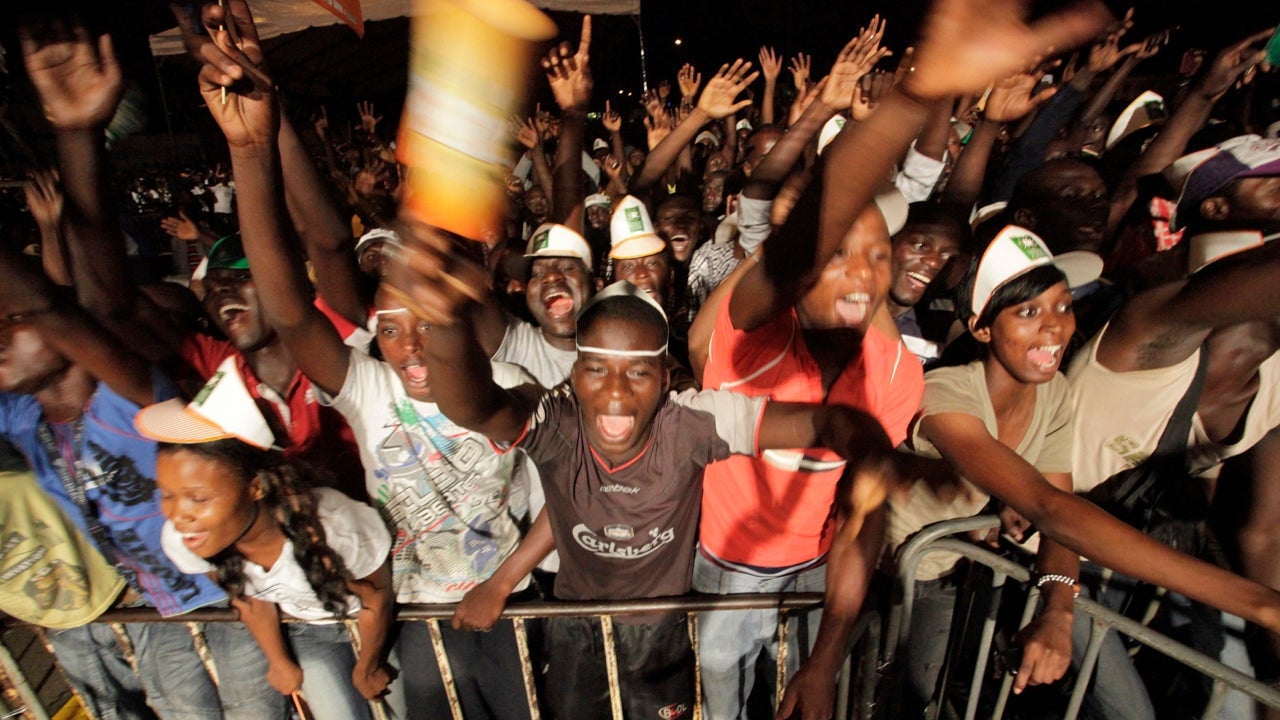A new generation of African musicians are taking on politics, and gaining young fans
Over the catchy beats of Afropop, artists are increasingly tapping into the frustrations of young Africans. Leaders, threatened by this musical momentum, are trying to silence it.


Over the catchy beats of Afropop, artists are increasingly tapping into the frustrations of young Africans. Leaders, threatened by this musical momentum, are trying to silence it.
In Uganda, musician Bobi Wine’s popularity among his fans was enough to catapult him from self-styled “Ghetto King” to an elected lawmaker. Last year, Wine beat out the ruling party and opposition party candidate to win his seat. Moving from stage to parliamentary benches, Wine’s message has remained the same, speaking out against corruption, social media taxation and the 73-year-old president’s continued grip on power.
When Wine’s supporters clashed with those of president Yoweri Museveni’s, state security arrested him in what seems like an attempt no neutralize him. At 36, Wine could be an ideal candidate in one of the world’s youngest nations. Museveni, who has been in power for over three decades, tried to dismiss Wine as “indisciplined [SIC] grandson,” but was clearly rattled by this emerging political threat.
Wine has had a knack for being a kingmaker, with four candidates he backed in the last year winning seats in by-elections. Following his detention, his fans and supporters came out to protest, causing chaos in the capital and nearby towns.
Often, banning a politically charged song only serves to reinforce its message. Inspired by Childish Gambino’s audacious hit This is America, Nigerian rapper Falz turned that gaze on his own country. Yet, while the American version provoked debate and cultural acclaim, Falz’s critique of Nigeria’s ills was silenced by an embarrassed state.
Even when songs have no overt political message, they are viewed as subversive by governments using conservative values to keep a country in check. Tanzania’s highest selling artist, Diamond Platnumz, had two of his songs banned earlier this year and was detained a month later for a social media post deemed indecent by the country’s authorities. As Tanzania enacts an internet crackdown, arresting the country’s biggest musician sends a clear message to ordinary young Tanzanians.
Still, artists are learning the value of speaking to their fans rather than toeing the line. Sauti Sol made their name in Kenya and beyond with party bangers, but last week felt they could no longer be silent about the corruption and populism threatening to derail the country’s progress. Releasing Tujiangalie, meaning “self-reflection” in Swahili, they questioned whether the country is really as stable as it seems from Nairobi’s trendy rooftops. Sauti Sol was questioned for waiting this long to speak up, and for not addressing politicians directly, but the song has brought a much need conversation the airwaves.
Music has always been a medium with which to challenge the establishment—from Miriam Makeba’s warning to the apartheid government to Fela Kuti’s rebuke of wayward postcolonial leaders. Present-day governments are using the same old tactics to silence their critics—but today, the beat moves a digital generation, sending it even further.